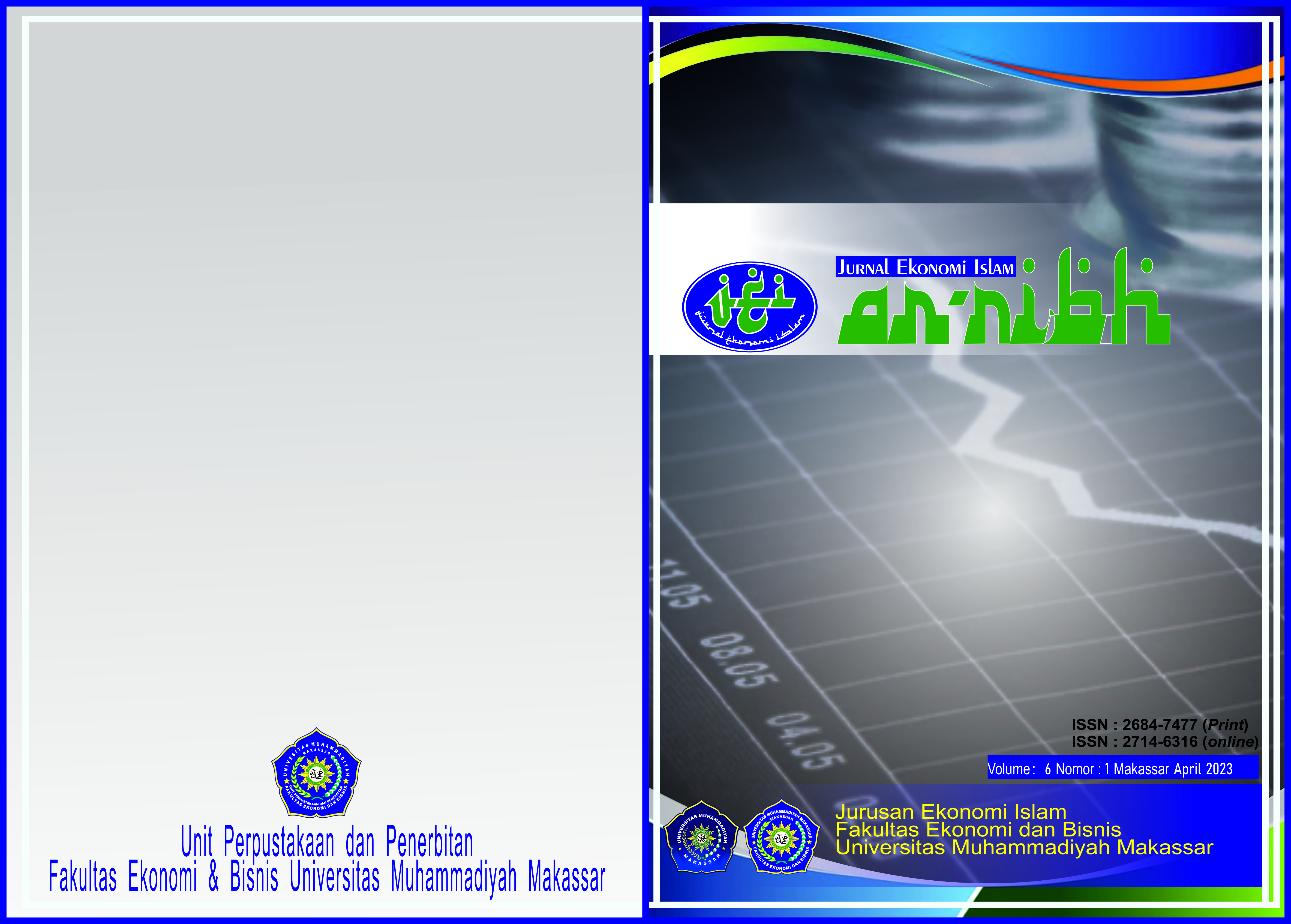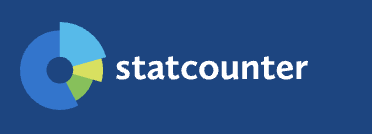The Effect of Religiousity and Subjective Norms on The Interest of Generation Z In Cash
DOI: https://doi.org/10.26618/jei.v6i1.10634
Abstract
This study focuses on analyzing the impact of religiosity and subjective norms on the interest of Generation Z in cash waqf. The purpose of this study is to analyze the behavior of generation Z in expanding interest in cash waqf as well as to see the role of waqf institutions as the main media in helping generation Z to make cash waqf. The method used is a quantitative research method. This study uses two types of data sources, namely primary data and secondary data. Primary data was obtained through the distribution of questionnaires and secondary data through library research such as journals, books, theses and others to strengthen the arguments in this study. The results showed that religiosity had a positive and significant impact on the interest of Generation Z in cash waqf. While subjective norms have a positive and insignificant effect on the interest of generation z in cash waqf.
References
Adisti, A. (2021). Preferensi Publik terhadap Wakaf Uang di Sumatera Barat. Al-Muzara’Ah, 9(1), 85–98. https://doi.org/10.29244/jam.9.1.85-98
Amalia, A. N. (2020). Pengaruh Pemahaman Agama dan Sosialisasi Program Terhadap Minat Berwakaf Uang. Maqdis : Jurnal Kajian Ekonomi Islam, 5(2), 1–18. http://journal.febi.uinib.ac.id/index.php/maqdis
Amalia, A. N., & Puspita, P. (2018). Minat Masyarakat Jakarta dalam Berwakaf Uang pada Lembaga Wakaf. Syi`ar Iqtishadi : Journal of Islamic Economics, Finance and Banking, 2(2), 1. https://doi.org/10.35448/jiec.v2i2.4382
Amin Abdul Rohman. (2022). Pengaruh Religiusitas, Pengetahuan, Perspesi, Pendapatan, dan Media Infromasi terhadap Minat Wakaf Uang Masyarakat Kota Bandung. Jurnal Riset Ilmu Ekonomi Dan Bisnis, 1(2), 136–144. https://doi.org/10.29313/jrieb.v1i2.513
Analisis, N., Sikap, P., & Subyektif, N. (2008). Abstrak nurfiawan .
As Shadiqqy, M. (2019). Pengaruh Pendapatan, Religiusitas, Jarak Lokasi, Tingkat Pendidikan dan Akses Informasi Terhadap Minat Masyarakat untuk Berwakaf Uang di Badan Wakaf Uang Tunai MUI DIY. Panangkaran: Jurnal Penelitian Agama Dan Masyarakat, 2(2), 249. https://doi.org/10.14421/panangkaran.2018.0202-05
Chrisna, H., Noviani, & Hernawaty. (2021). Faktor - Faktor Yang Mempengaruhi Minat Berwakaf Tunai Pada Jamaah Majelis Taklim Istiqomah Kelurahan Tanjung Sari Medan. Jurnal Akuntansi Bisnis & PubliK, 11(2), 70–79.
Christian, K., & Mandey, S, L. (2015). Pengaruh Sikap, Norma Subyektif, Dan Gaya Hidup Terhadap Keputusan Pembelian Handphone Asus Di Gamezone Computer Mega Mall Manado. Jurnal EMBA, Vol.3(2), No.2. Faisal, M. (2020). Sikap, Norma Subjektif, Religiusitas, dan Partisipasi
Terhadap Wakaf Tunai. Li Falah: Jurnal Studi Ekonomi Dan Bisnis Islam, 4(2), 235. https://doi.org/10.31332/lifalah.v4i2.1548
Fauzi, M., Gunawan, A., & Darussalam, A. (2020). Upaya Baitul Maal Wa Tamwil Bertahan Di Masa Pandemi Covid-19. Al-Urban: Jurnal Ekonomi Syariah Dan Filantropfi Islam,4(2),141–152. https://doi.org/10.22236/alurban
Hiyanti, H., Afiyana, I. F., & Fazriah, S. (2020). Potensi dan Realisasi Wakaf Uang di Indonesia Tahun 2014-2018. Jurnal Ilmiah MEA (Manajemen, Ekonomi, Dan Akuntansi), Vol.4 No.1(1), 77–84.
Maivalinda, M., Srihasnita, R., & Firsta, F. (2021). Mengukur Minat Wakaf Uang Generasi Milenial dalam Mendukung Pendanaan Pembangunan Berkelanjutan Sumatera Barat. Jurnal Ekonomi Dan Bisnis Dharma Andalas, 23(1), 84–93. https://doi.org/10.47233/jebd.v23i1.175
Mintardjo, C. M., Mandey, S., & Binalay, A. G. (2016). Pengaruh Sikap, Norma Subjektif Dan Motivasi Terhadap Minat Beli Secara Online Pada Mahasiswa Fakultas Ekonomi Dan Bisnis Di Manado. Jurnal Riset Ekonomi, Manajemen, Bisnis Dan Akuntansi, 4(1), 395–406.
Nisa, D. H. (2021). Analisis Pengaruh Pengetahuan, Pendapatan, Religiusitas, dan Akses Media Informasi Terhadap Minat Berwakaf Pada Cash Waqf Linked Sukuk (CWLS). Sksipsi Universitas Islam Indonesia, 1–141.
Pramudia, R. A., & Syarief, M. E. (2020). Pengaruh Persepsi Pengetahuan, Informasi, Dan Religiusitas Terhadap Minat Berwakaf Uang. Jurnal Justisia Ekonomika: Magister Hukum Ekonomi Syariah, 4(2). https://doi.org/10.30651/justeko.v4i2.6482
Putra, T. W., & Fildayanti, D. A. (2021). Revitalization of Waqf Management for Social Economic Development of East Luwu. Al-Risalah, 12(2), 297–311. https://doi.org/10.34005/alrisalah.v12i2.1403
http://content.ebscohost.com/ContentServer.asp?EbscoContent=dGJyM NLe80Sep7Q4y9f3OLCmr1Gep7JSsKy4Sa6WxWXS&ContentCustome r=dGJyMPGptk%2B3rLJNuePfgeyx43zx1%2B6B&T=P&P=AN&S=R&D= buh&K=134748798%0Ahttp://amg.um.dk/~/media/amg/Documents/ PoliciesandStrategies/S
Soemitra, A. (2022). Studi Literatur Model Penerapan Wakaf Pada Organisasi Pengelola Wakaf Di Indonesia. 8(01), 483–490.
Syaifullah, H., & Idrus, A. (2019). Inovasi Pelayanan Wakaf Produktif Era Digital: Studi Kasus Di Yayasan Wakaf Bani Umar 2018. ZISWAF : Jurnal Zakat Dan Wakaf, 6(2), 114.
https://doi.org/10.21043/ziswaf.v6i2.6415
Utomo, E. P., & Probosini, N. (2020). Pengaruh Sikap Dan Norma Subjektif Terhadap Intensitas Penggunaan Aplikasi Streaming Pada Generasi “Z.” Jurnal Ilmu Sosial Dan Humaniora, 9(2), 241.
















